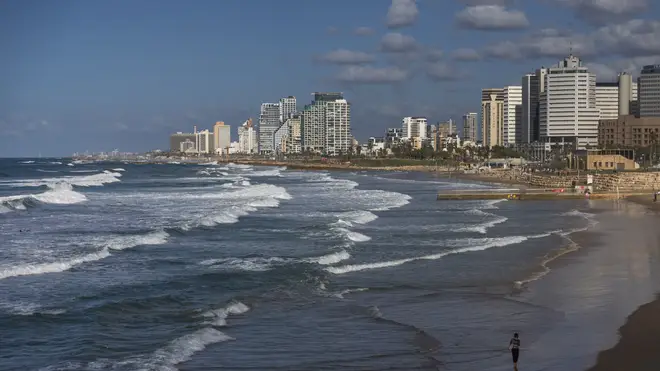
Ian Payne 4am - 7am
2 December 2021, 16:44

The seaside metropolis, which was previously ranked fifth, has overtaken Paris and Singapore in the global rankings.
Tel Aviv in Israel has been ranked the most expensive city in the world to live in, according to a new survey.
The seaside metropolis, which was previously ranked fifth, has overtaken Paris and Singapore in a report compiled by the Economist Intelligence Unit.
Economists attributed the jump to a strong appreciation of the shekel against the dollar.
In its report, the unit – a research group linked to the Economist magazine – also pointed to a rise in food and transport costs. But the report did not include house prices, a common complaint among young professionals and families trying to live in the bustling city.

Resident Ziv Toledano said: “It’s really hard to live here. You pay the rent and you pay for something small and you live, like, from paycheck to paycheck so it’s really hard.”
He added that his expenses had nearly doubled since he moved to Tel Aviv from northern Israel.
Tel Aviv is Israel’s financial and cultural epicentre. It boasts a thriving high-tech scene, world-class restaurants and a stretch of Mediterranean beach lined by gleaming new hotels and apartment blocks.
The shekel is one of the world’s strongest currencies, with its value buoyed in large part by heavy foreign investment in the local high-tech scene.
Dan Ben-David, head of the Shoresh Institution for Socioeconomic Research and an economist at Tel Aviv University, said goods and services in Israel in general were more expensive than in other countries.

Tel Aviv was also more expensive because it was the country’s economic hub, with high-paying tech jobs drawing talent from across the country who were driving up the cost of food and rent.
“Israel is expensive, and in that regard, Tel Aviv is more expensive than other places in Israel because that’s where the good jobs are,” he said.
The city also attracted Israelis who wanted to live close to its vibrant cultural and social scene.
Compounding the issue, Mr Ben-David said, was major congestion leading into the city and inadequate transport links to the suburbs and surrounding cities, causing even more people to want to reside in the city.
This, along with foreign buyers, had sent real estate prices skyrocketing, making purchasing an apartment in Tel Aviv almost unattainable for the average Israeli, with modest apartments in desirable areas costing four million shekels, or more than £950,000.
A decade ago, hundreds of thousands of Israelis took to the streets to demand a solution to the rising cost of living.
Successive Israeli governments have struggled to create better job opportunities in other parts of the country and attempts to extend public transport are ongoing.